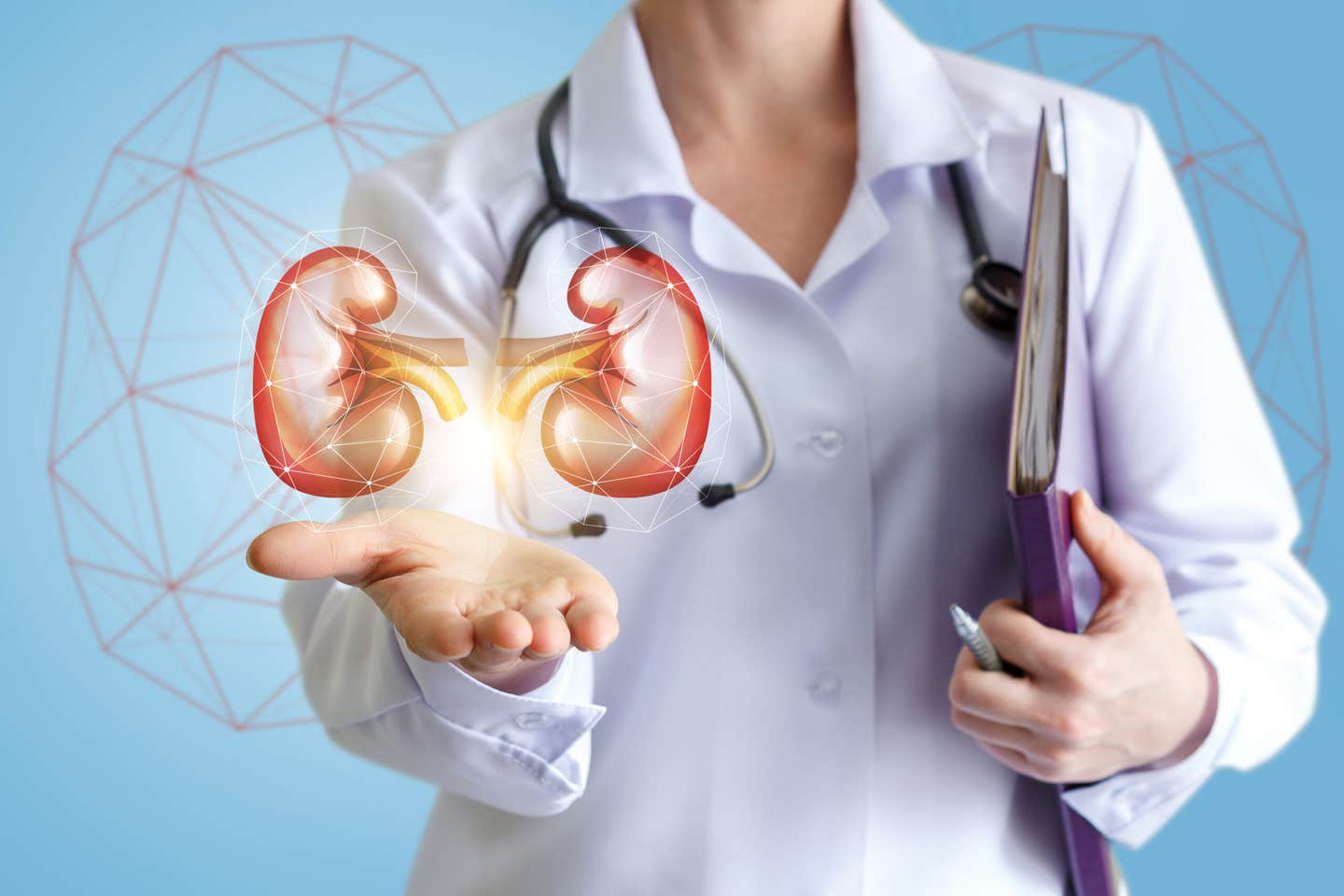Lifechanging drug delivers significant benefit to 70% of kidney disease patients
In a groundbreaking clinical trial, an experimental drug known as BI 690517 has exhibited remarkable potential in reducing albuminuria

[Dec. 20, 2023: JD Shavit, The Brighter Side of News]
In a groundbreaking clinical trial, an experimental drug known as BI 690517 has exhibited remarkable potential in reducing albuminuria. (CREDIT: Shutterstock)
In a groundbreaking clinical trial, an experimental drug known as BI 690517 has exhibited remarkable potential in reducing albuminuria, a key indicator of kidney damage, among patients suffering from chronic kidney disease (CKD).
The trial, led by Dr. Katherine Tuttle, a clinical professor of nephrology at the University of Washington School of Medicine, and executive director for research at Providence Inland Northwest Health in Spokane, has yielded promising results that may revolutionize the treatment landscape for CKD patients. The findings, published in the esteemed medical journal The Lancet, have ignited excitement within the medical community and offer hope to millions of individuals affected by kidney disease worldwide.
Aldosterone: The Culprit in Kidney Disease Progression
The experimental drug, BI 690517, has been meticulously designed to target aldosterone, a hormone responsible for regulating sodium and potassium levels in the body, which in turn plays a crucial role in maintaining blood pressure. However, excessive aldosterone production has been identified as a driving force behind the acceleration of kidney disease. This paradoxical relationship poses a significant challenge for medical professionals seeking to treat CKD effectively.
Related Stories
Dr. Tuttle explained the complexity of the issue, stating, "Two of the standard-care therapies for kidney disease, angiotensin-converting enzyme (ACE) inhibitors and angiotensin receptor blockers (ARB), have been observed to increase aldosterone levels over time.
Conversely, aldosterone inhibitors, while effective in reducing organ inflammation and impeding kidney disease progression, can trigger adverse side effects, including dangerously high blood potassium levels, a condition known as hyperkalemia."
These considerations heavily influenced the design of the clinical trial, as Dr. Tuttle highlighted, "To participate in the study, individuals had to be on either an ACE inhibitor or an ARB at the highest tolerable dose for a minimum of four weeks before enrolling. Additionally, we incorporated another medication, an SGLT2 inhibitor called empagliflozin, as background therapy for all participants."
Sodium-glucose cotransporter-2 (SGLT2) inhibitors were originally developed to manage blood sugar levels, but their remarkable kidney-protective properties have positioned them as "the biggest breakthroughs we've had for kidney disease in 30 years," according to Dr. Tuttle. Notably, these inhibitors help mitigate the risk of hyperkalemia, a crucial aspect of the trial's success.
Dr. Tuttle elaborated on this point, stating, "Including an SGLT2 inhibitor in the background therapy for participants was a critical design feature. This allowed us to assess BI 690517's efficacy in enhancing kidney protection while simultaneously reducing the major side effect associated with aldosterone-inhibiting agents."
A Comprehensive Clinical Trial
The clinical trial, spanning from February 2022 to July 2023, enrolled a total of 714 participants, all of whom had received formal diagnoses of kidney disease. During the trial, participants were randomly assigned to receive an initial eight-week therapy of either empagliflozin or a placebo. Subsequently, 586 participants were randomly allocated to receive BI 690517 at daily doses of 3 mg, 10 mg, or 20 mg, or a matched placebo, for a period of 14 weeks.
Adrenal insufficiency was an adverse event of special interest reported in seven of 436 study participants (2%) receiving BI 690517 and one of 147 participants (1%) receiving matched placebo. No treatment-related deaths occurred during the study. (CREDIT: The Lancet)
The primary measure of efficacy in the trial was the reduction in albuminuria, a hallmark of kidney damage. Notably, a clinically significant reduction in albuminuria levels, defined as a decrease of 30% or more, was observed in half of the participants who received BI 690517 as a monotherapy. The most remarkable results were observed in participants receiving 10 mg doses of the experimental drug. Even more striking, a substantial 70% of participants who received both BI 690517 and empagliflozin experienced a clinically meaningful reduction in albuminuria.
Managing Hyperkalemia: A Key Challenge
While the study demonstrated the efficacy of BI 690517 in reducing albuminuria, it was not without challenges. The experimental drug was associated with higher rates of hyperkalemia compared to the placebo group. However, it is worth noting that most cases of hyperkalemia did not require medical intervention, as reported by the researchers.
Symptoms of Hyperkalemia. (CREDIT: Cleveland Clinic)
In a significant observation, empagliflozin appeared to have a mitigating effect on hyperkalemia, with the researchers noting that "the magnitude of potassium reduction by empagliflozin is in line with recently reported meta-analyses including nearly 50,000 participants."
A Promising Path Forward
The encouraging findings from this clinical trial are poised to shape the future of CKD treatment. Dr. Tuttle expressed her optimism about the impact of these results, stating, "We believe these findings are of significant importance. A staggering 75% of individuals on dialysis suffer from either diabetes or hypertensive kidney disease, and if we can successfully raise awareness, improve access, and detect kidney disease at treatable stages, these agents may render dialysis nearly obsolete. This goal is within our reach."
As Dr. Tuttle aptly summarized, "For several decades, we have known that aldosterone is a major driver of inflammation and fibrosis in the kidney and the heart. Therapeutically targeting aldosterone has proven to be a formidable challenge. However, with the promising results of BI 690517 and the potential to transform the lives of kidney disease patients, we are on the cusp of a groundbreaking breakthrough."
Note: Materials provided above by The Brighter Side of News. Content may be edited for style and length.
Like these kind of feel good stories? Get the Brighter Side of News' newsletter.



